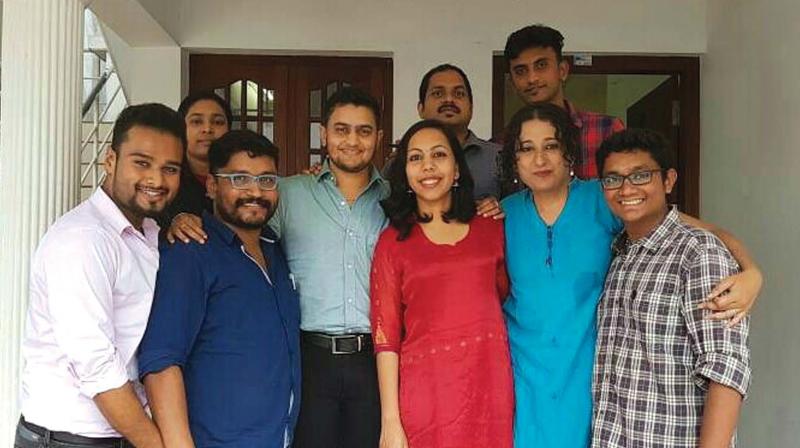Unwelcome at home
At a time the spirits are high and people share happy stories of getting together with families.

It had all been quick. Academician-activist J. Devika had cancelled her trip to Ahmadabad for a University programme, because she wanted to be home in Thiruvananthapuram and prepare a proper Onam Sadya for some friends. But two days ago, they called her and said they were invited to go home. They had sounded so happy that Devika felt good about it too. These kids, she thought, deserved to be happy for Onam. But then it had not turned out like they hoped. This post from Jijo Kuriakose, one of those kids, says the story:
The decision to make it to home at native to be with family for Onam turned out to be utter turmoil as the hushed mode of lapsed conversations among immediate family members stay unsettled. If they stay Ok for me being homosexual the next season of conversations gets focused on their need to get myself corrected to be a socially eligible human. They, who, once are ready to listen and nod head gets switched often leaving me in an uncertain stage of grief, which in turn kills quality time, if any, in my daily life. Ain't sure how long I can survive however rigid the social alliances for LGBTIQ community in Kerala is. Feeling mentally unstable and deceased! (sic)
“That post is so heartbreaking. If they hadn’t wanted them home, why call them, and then treat them this way,” asks Devika. She had cancelled the Onam plan for them when they told her they were going home. “I had my doubts even as they told me they were called home. It is so sad to hear their stories. One father said, ‘If I knew 25 years ago that you would turn out like this, you wouldn’t have come to earth’. Others said they have no Onam. These parents don’t realise how genuinely these kids love them. In their old age, it would be these kids who’d be there for them, not the so called good ones. Let them not reach a stage when no one is there, you can’t wish ill on anyone. But it’s so banal, this cruelty from home. If these kids had the support of people at home, they would have led much better lives, instead of these double lives.”
Jijo, who is at a railway station at the time this is written, has left home to be away from it all. He had come out four years ago to his family. They could take his homosexuality, but they couldn’t accept his being vocal about it, working for the community. “I don’t wish to call myself an activist but I write, talk about it, so that people understand, people are aware. When I went home they were angry. My brothers raise voice because they think that’s a sign of masculinity and when I keep silent, they take it as victory,” Jijo says. While it’d seem there is a lot of space now for the queer community, with the government policies, with the visibility in media, Jijo says the situation is still bad at home and at the workplace which is where one spends most of a lifetime. “I can tell I am co-founder of Queerala (that works for the LGBT welfare) but I can’t tell where I work for my living.”
On weekends he’d go to LGBT events instead of family functions. “I can’t be in a room with 50 heterosexuals because someone would come and ask me can’t you stop all this, can’t you get married. Hardly anyone asks me what movies I watched or how’s work.”
Kiran (name changed) had a really bad experience for Onam too. He and his partner, both students, living in Ernakulam, came out to their families last week. “My partner was sure that they would accept us. I had warned him not to but he was confident. But everything changed once he came out. Now they wouldn’t let me near him, they also came to my home and told my folks. I was locked in a room for two days. My partner was taken to psychiatrists. I was told there will be no Onam at my home now,” he says, swallowing the grief in his words.
Away in Chennai, Dr Lenin has found another way to deal with family tensions at festival time. To stay away. His partner, who hails from Kerala, is now home in Kottayam for Onam. Dr Lenin, without complaints, stays away. “Their way of dealing with it is not talking about it. As for me, I come from an atheist family so I had thought they wouldn’t have a problem. But they did when I came out in 2010. Two years ago, I left home.” He would of course have been happy to be part of the festivities with his partner. “We are social beings too, we’d like to be part of the community but we are deprived of that. That your immediate family cannot be part of your happiness or grief, will strike you bad.”

